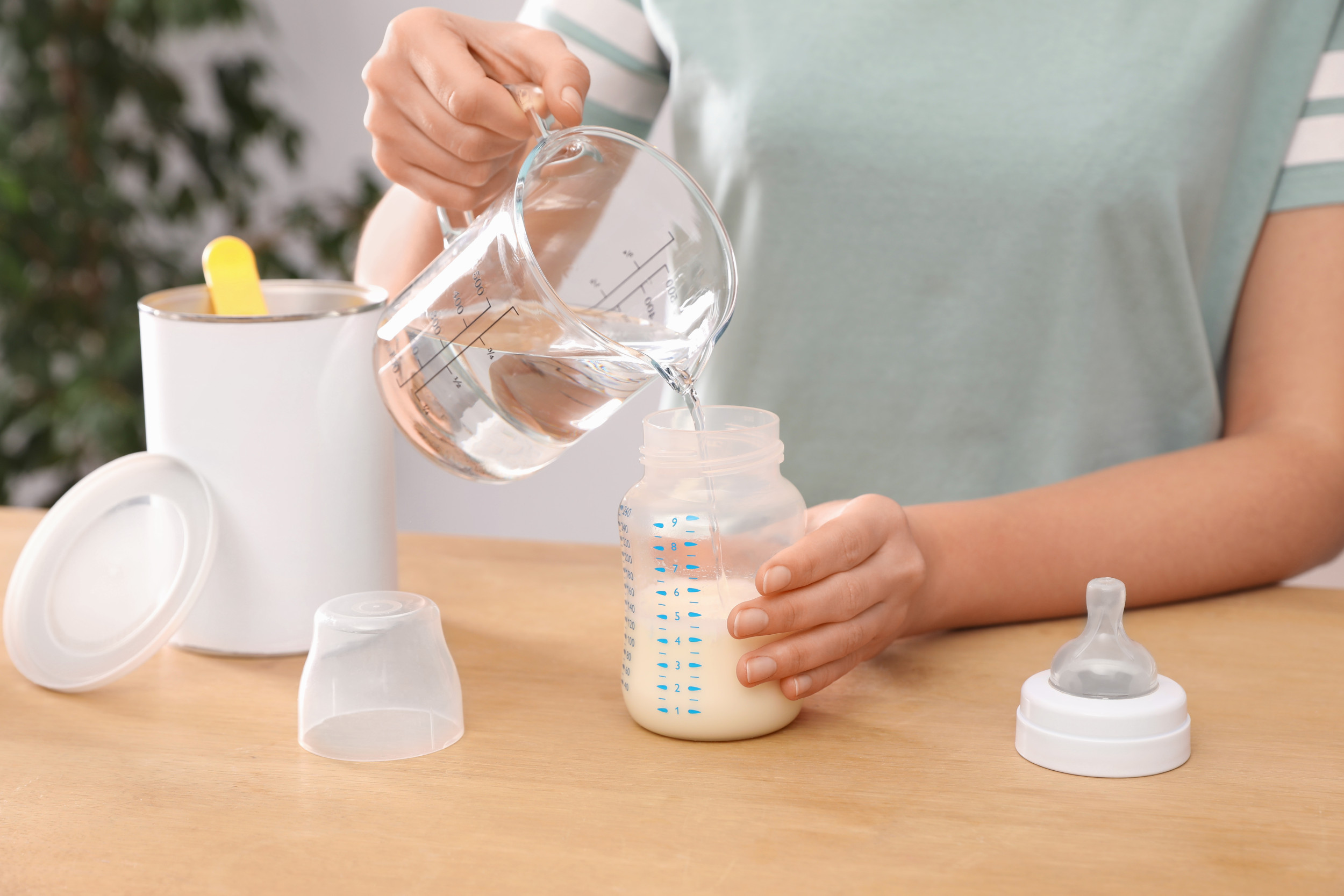
Parents of newborns are being urged to take extra care when preparing powdered infant formula after new research revealed that the ambiguity of many current instructions may leave babies vulnerable to a deadly foodborne bacteria.
The study, published in the Journal of Food Protection by Cornell University researchers, highlights dangerous gaps in the guidelines printed on formula packaging.
According to the team, ambiguous instructions—such as “boil water and wait five minutes”—do not provide the precision needed to kill Cronobacter, a rare but life-threatening pathogen.
Liudmila Chernetska
Cronobacter infections are uncommon, with only about 18 cases reported annually in the U.S. But for high-risk infants—including babies under two months, premature infants and those who are immunocompromised—contracting the bacteria can be extremely risky.
Contaminated powdered formula can cause septicemia, meningitis and even death.
Previous studies have shown that water heated to at least 158 degrees Fahrenheit (70 degrees Celsius) can kill Cronobacter.
“We assessed what instructions would help ensure caregivers following a series of preparation steps would use water that measured at least 158 degrees Fahrenheit,” Abigail Snyder, associate professor of microbial food safety and corresponding author on the paper, said in a statement.
The new research refines this guidance, recommending a step-by-step approach that leaves far less room for error: Boil water and pour it directly into the baby bottle. Use a thermometer to monitor the cooling water until it reaches about 165°F. Add powdered formula, shake well and let the mixture sit for one minute. Actively cool the bottle—such as under running water—until it reaches body temperature.
This extra heat step allows the water to kill any Cronobacter that may be present before the formula is fed to the baby.
Researchers acknowledged that asking sleep-deprived parents to measure temperatures and wait precise times can feel overwhelming.
However, the period of highest risk is relatively short: infections are most dangerous in the first eight weeks of life. After that, the risk of Cronobacter decreases sharply.
“It’s important to protect our most vulnerable infants and this is an instance where caregivers have agency to make sure formula is safe,” Snyder said.
The research was supported in part by the U.S. Department of Agriculture and could inform future changes to formula preparation guidelines.
“We’re asking people to do this extra work but then the preparation protocols that are provided can result in practices that are insufficient to inactivate Cronobacter, despite all the additional effort,” Snyder said. “That’s the circumstance that we’re trying to prevent.”
Do you have a tip on a health story that Newsweek should be covering? Let us know via health@newsweek.com.
Reference
Beary, M. A., Daly, S. E., Baker, J., & Snyder, A. B. (2025). Assessing Hot Water Reconstitution Instructions and Labeling of Powdered Infant Formula to Ensure Cronobacter spp. Reduction. Journal of Food Protection, 88(9), 100571. https://doi.org/10.1016/j.jfp.2025.100571
